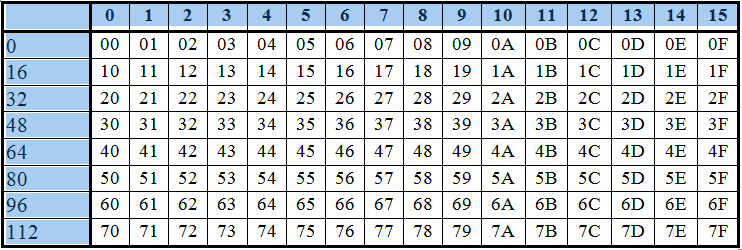Actually pretty often there is a need for entering special characters in a keys argument. For example in order to search for an escape sign or separate 2 PJL commands with Carriage Return and Line Feed
Also variables may have the need of special characters.
In any case, most of the arguments do first replace the variables and then convert the hext information into the characters. Then the term is used
The Hex notification is always 4 characters. It starts with \x and then followed by the 2 HEX characters in upper case
\x1B for the Escape sign 1B or ASCII 27.
Even Hex 00 is then a valid, searchable sign: \x00.
[GLOBAL]
; define a default value to a variable
Variable=#MyVariable#:Initialisation Text
[Search in data stream for the text 12345]
Search_Windows=12345
; And replace it
Replace_binary=ABCDEFG\x0D\x0A#MyVariable#
Search_Only_Once=ON
If the date stream looks like this:
1234123451234
will result the rule into this data stream:
1234ABCDEFG
Initialisation Text1234
Hex Table

In order to convert for example an ESC String into HEX values, proceed like this:
1. Look up in the ASCII Table for the characters ASCII value.
2. Look up in the HEX table for the Hex representation of the ASCII value.
Example:
<27>(sp10hsb4099T -> 0B 28 72 70 31 30 68 72 62 34 030 39 39 54
If your input field for ESC sequences doesn't offer the needed length, then simply split the sequence into two ESC sequences, like <27>(sp10H and <27>(ssb4099T.
 DE
DE  EN
EN 